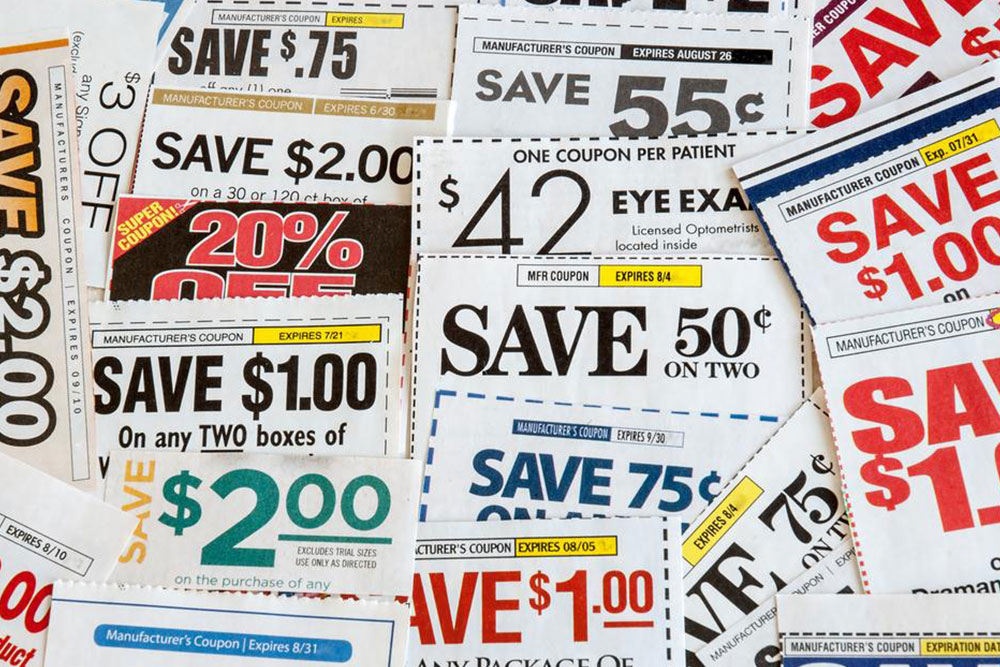Effective Techniques to Cut Grocery Expenses and Save Money
Discover comprehensive strategies to significantly reduce your grocery bills. From using printable coupons and planning meals around discounts to bulk buying and comparing store prices, this guide offers practical tips to help you manage household grocery expenses effectively. Learn how to optimize your shopping habits, utilize loyalty programs, and avoid impulse purchases to stay within your budget without sacrificing nutritional needs. Implementing these techniques can lead to substantial long-term savings, making grocery shopping more affordable and stress-free for your family.

Effective Techniques to Cut Grocery Expenses and Save Money
Managing grocery expenses is a crucial aspect of overall household budgeting. As one of the most significant monthly expenditures, food costs can quickly add up, impacting your financial stability. According to the Bureau of Labor Statistics, food bills remain among the largest household expenses. Therefore, adopting strategic shopping habits and cost-saving measures can substantially reduce your grocery bills without compromising your family's nutritional needs. In this comprehensive guide, we explore multiple practical tactics, including coupon use, inventory management, shopping strategies, and more, to help you maximize savings and stay within your budget.
Perform Regular Inventory Checks
Begin by conducting a thorough review of your freezer and pantry on a monthly basis. Take stock of what you already have and identify items that need replenishing. Maintaining an updated inventory prevents accidental duplicate purchases and reduces waste, thereby saving money. Organize your supplies so you can quickly assess stock levels, making it easier to plan meals around what you already own. This habit ensures that you buy only what you need, preventing impulsive buys driven by unclear stock levels.
Plan Your Meals Around Discounts
Align your weekly meal plan with promotional deals and store discounts. Keep an eye on weekly flyers and digital coupons offered by your favorite supermarkets. Purchasing discounted items and incorporating them into your meals can significantly cut costs over time. For example, if chicken breasts are on sale, plan your meals around that ingredient for the week. Strategically shopping for sale items ensures you leverage special offers effectively, transforming your shopping routine into a cost-efficient process.
Limit Shopping Trips to Once a Week
To prevent unnecessary spending and reduce impulse buys, try to schedule your grocery shopping just once a week. A weekly shopping trip helps you plan better, stick to your shopping list, and avoid last-minute temptations that often lead to higher bills. Additionally, fewer trips mean less exposure to impulsive purchasing impulses that can creep in when you make multiple store visits, effectively helping you control your expenses.
Review your receipts meticulously after each shopping trip to pinpoint which items are driving up your costs. Use this information to identify areas where you can cut back or find alternatives. For instance, if high-quality steaks are frequently purchased, consider switching to more affordable cuts like ground beef for regular meals. Making informed choices based on your spending patterns ensures better budget management. Furthermore, regularly comparing prices helps you identify the best deals across different stores, saving you money in the long run.
Compare Prices at Different Stores
Research and visit multiple local grocery stores to find the best prices on your essential items such as milk, bread, eggs, and chicken. Price comparison allows you to purchase from outlets offering the lowest prices for your staple items, further stretching your household budget. Consider using price comparison apps or websites to streamline this process. Being flexible about where you shop can lead to substantial savings, especially on high-cost items that significantly impact your total bill.
Leverage Printable Coupons and Digital Deals
Take advantage of printable coupons available online from various supermarkets and brands. Many stores offer digital coupons accessible through their apps or websites, making it convenient to clip discounts for your shopping list. Printing coupons before heading out ensures you’re prepared to save at checkout. Using coupon aggregators and deal sites can give you access to special discounts, free offers, and exclusive promos, all contributing to lower grocery expenses.
Buy in Bulk for Non-Perishable Items
Purchasing non-perishable goods like cereals, coffee, pasta, and cleaning supplies in bulk during sales reduces overall costs over time. Bulk buying not only saves money but also ensures you have essential items readily available, preventing last-minute purchases at higher prices. Establishing a well-organized storage system at home makes it easier to manage bulk supplies effectively without clutter or waste. Be mindful to buy only what you need in bulk to avoid overstocking, which can lead to waste.
Join Loyalty and Rewards Programs
Enroll in store loyalty programs and reward schemes that your favorite supermarkets offer. These programs often provide discounts, exclusive deals, and points that can be redeemed for future purchases. Consistently shopping at one store and accumulating points can lead to significant savings on your regular grocery bills. Some programs also send personalized coupons based on your shopping habits, further customizing your savings potential.
Shop Alone to Avoid Impulse Buying
Shopping alone minimizes the influence of others who might encourage unnecessary or impulsive purchases. Group shopping trips often lead to unplanned buys, inflating your total bill. Bringing only the essentials and sticking to your shopping list helps maintain control over your spending. Solo shopping allows you to focus on your budget and prioritize the items you truly need, paving the way for smarter shopping habits.
Eat Before You Shop
Shopping on an empty stomach increases the likelihood of impulse buying and overspending. Hunger can also lead to choosing more expensive or less nutritious options. To avoid this, have a meal or a snack before heading to the grocery store. Being full helps you stick to your shopping list, make healthier choices, and keep expenditures in check. This simple yet effective tip can significantly reduce your overall grocery costs over time.





